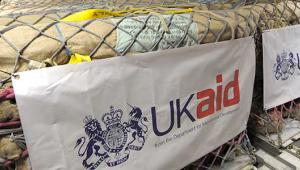Ahead of a meeting on sovereign debt restructuring, the UN Conference on Trade and Development warned that new ways were needed to deal with sovereign debt crises.
According to the UNCTAD, countries in Africa and elsewhere have been accruing debt while their ability to repay shrinks. Falling commodity prices, an increase in the value of the dollar, and the prospect of higher interest payments make repayment less likely and could hit development plans.
“Sovereign nations do not have the protection of bankruptcy laws to restructure or delay their debt repayments in the same way that private debtors do,” UNCTAD secretary general Mukhisa Kituyi said ahead of the meeting.
“While creditors cannot easily seize non-commercial public assets, sovereign debt faults bring major problems in terms of reputation and access to further loans.”
Kituyi highlighted that past debt crises in developing countries such as in Argentina had led to highly speculative funds, including so called “vulture funds”, aggressively pursuing debt repayments. This meant that debt became increasingly expensive and disruptive to national economies.
Research to be published in full by UNCTAD next month will show that in the decade since 2006, 13 countries in Africa have accrued more than $25bn in bonds.
Researchers Ingrid Harvold Kvangraven and Aleksandr V. Gevorkyan, highlighted that many African countries are now facing repayment difficulties, pointing to Ghana as an example.
“Ghana is in a difficult, yet unfortunately common position, as it depends on commodity exports such as gold, oil and cocoa,” they said.
“With falling commodity prices, the country faces a decline in revenue and a growing current account deficit.”
Last year, after research contributed by UNCTAD, the UN General Assembly adopted a resolution stating that sovereign debt restructuring processes should be guided by basic international principles of law such as sovereignty, good faith, transparency, legitimacy, equitable treatment and sustainability. This reflected a growing concern about renewed sovereign debt crises and long-term debt sustainability in the context of continued global economic fragility.













